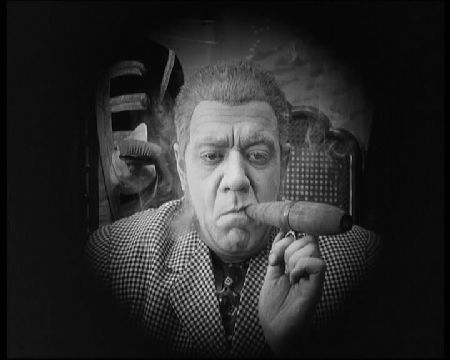The Oyster Princess (1919) 

Director: Ernst Lubitsch
Cast: Victor Janson, Ossi Oswalda, Harry Liedtke
Synopsis: An American heiress seeks the hand of an impoverished German prince.
Ernst Lubitsch’s The Oyster Princess (Die Austernprinzessin) introduces itself as “a grotesque comedy” which you might be forgiven for thinking is an oxymoron as it’s a movie originating from Germany — not a country generally associated with comedy. Lubitsch, however, went on to become one of Hollywood’s most assured directors of light comedies such as The Smiling Lieutenant and Trouble in Paradise, and while The Oyster Princess shows only limited evidence of the famed ‘Lubitsch Touch,’ there’s no doubt he and co-writer Hans Kraly were gripped by some kind of creative fever when they made it. The movie is a weird mix of semi-surreal humour and social satire which is just as likely to have its audience marvelling at its creativity as restlessly tapping its fingers in agitation.
Victor Janson (Die Puppe) plays Mister Quaker, the oyster-king of America, one of the nouveau riche who, having made his fortune, no longer feels it necessary to do anything for himself. When we first meet Quaker, he’s puffing on an oversized cigar, a good enough symbol of his fat cat status, but then the camera pulls back to reveal that the cigar is held by an immaculately attired black servant. Another servant holds a cup of tea to Quaker’s mouth while yet another stands by ready to wipe any drops from his lips. A fourth is on hand to comb Quaker’s hair should it become mussed as he does nothing. This is the grotesquery of The Oyster Princess: the exaggerated depiction of its characters to emphasise their wholesale imperfections. Quaker’s daughter, Ossi (Ossi Oswalda — Die Puppe, I don’t Want to Be a Man) is a girl of wildly destructive tendencies, prone to smashing furniture whenever she doesn’t get her way — or feels that she isn’t getting it quick enough.
On the day that we meet Ossi, she’s throwing a tantrum because her friend, the ‘Shoe-Cream Queen’ has married a Count, and so she wants to marry a prince too. Unimpressed by his daughter’s antics, Quaker nevertheless promises to find her a prince, and hires a matchmaker (Max Kronert — Die Puppe) to do just that. The matchmaker, working from an office adorned floor-to-ceiling with the photographs of his clients, selects the impoverished Prince Nucki (Harry Liedtke), who lives in a small flat with his friend, Josef (Julius Falkenstein — Schloss Vogelod). However, although impoverished, Nucki isn’t prepared to marry just anyone, and sends Josef to evaluate her suitability. But when Josef is kept waiting by Ossi, he passes himself off as Nucki and marries her on the Prince’s behalf. Much hilarity ensues…
Well, that’s not quite true. What humour there is to be gleaned from The Oyster Princess is from the details coincidental to the farcical plot, which really serves merely as a device upon which Lubitsch can display his often wildly inventive — but not entirely successful — ideas. He exploits the idea of the co-dependence of the Nouveau Riche and impoverished Old World aristocracy, ridiculing both worlds with impeccable fairness. The newly rich are crass and spoiled and lazy, while the aristocracy is drunken, immature and lazy. The aristocracy wear elegant clothes but palm pilfered notes from their friends and live on smoked kippers, and yet they enjoy a status that the obscenely wealthy Americans covet.
Lubitsch seems to delight in the opportunities afforded to him by this slightly skewed version of reality. The action mostly takes place in Quaker’s palatial mansion in which bright Art Deco design highlights the empty spaces between its occupants. The sets are opulent, and put to good use; an endless stream of servants pass one another four-abreast on the stairs, party guests dance to a manic bandleader, chefs dance a foxtrot in the roomy kitchen. Later, a bevy of socialite women line up to duke it out in an impromptu boxing match to see who wins the privilege of redeeming the real drunken prince. It looks wonderful and is full of inventive touches, but the comedy is pretty thin and eventually grows tiresome.
(Reviewed 8th September 2014)
httpv://www.youtube.com/watch?v=lPcoIcO7z8Q
